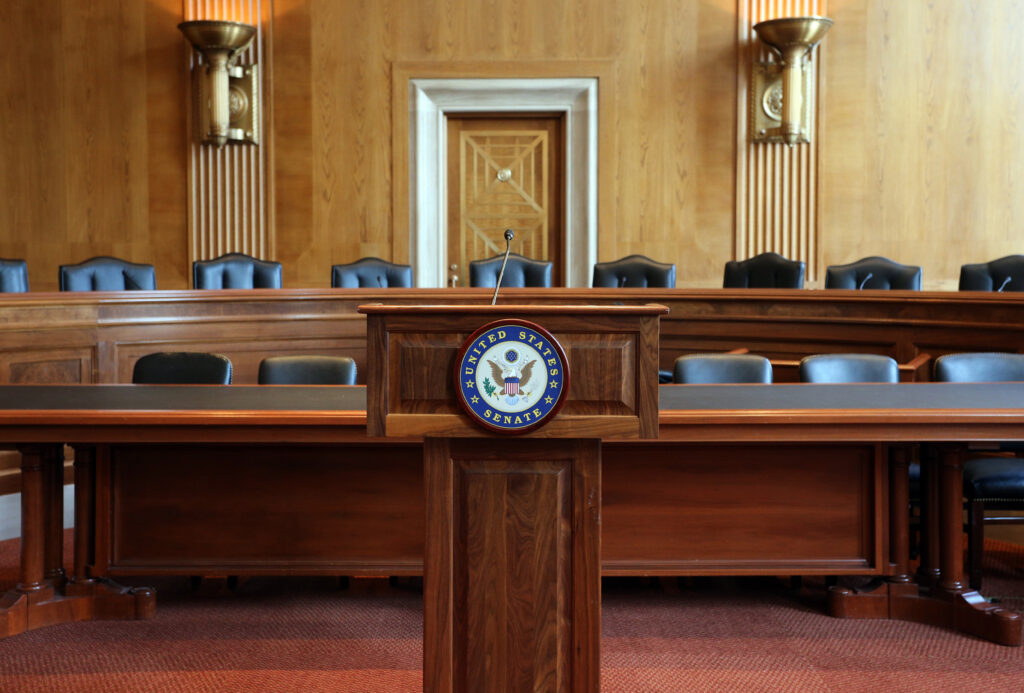Dispatch from Washington: Coming in 2025 – Taxmaggedon

by Annie Lange, Senior Director, Federal Affairs
While all eyes in Washington are laser-focused on the November election, several groups on and off Capitol Hill are already looking to 2025, when several massive tax provisions expire. To understand what’s in store for next year in the tax space, let’s look back at previous reform efforts and how the current debate could affect the beer business.
How We Got Here
In early 2016, then-Chairman of the House Ways and Means Committee Kevin Brady (R-TX) began working toward his long-held goal of overhauling the tax code. It had been three decades since the tax code was modernized, and since then, many new technologies, developments and tax incentives had altered the tax landscape. Brady knew this revamp would require input and support from Democrats in Congress–a major uphill battle.
The dynamics shifted drastically in November 2016, when Republicans claimed victory up and down the ballot, taking control of the White House, the Senate and the House of Representatives. Republicans could now take advantage of a special parliamentary procedure called reconciliation, which allows lawmakers to pass certain tax or budget-related bills with only a simple majority of votes (51%) – not the normal three-fifths. Using reconciliation, Senator Chuck Grassley (R-IA), then-Chairman of the Senate Finance Committee, and Chairman Brady crafted tax legislation that passed with a simple majority in both chambers.
That legislation, the Tax Cuts and Jobs Act (TCJA) (P.L.115-97), overhauled all areas of taxation, most notably:
- Increasing the standard deduction and lowering the alternative minimum tax for individuals,
- Providing a deduction for partnerships,
- Reducing corporate tax rates for businesses and
- Amending the U.S.’s international tax provisions.
Importantly, the Tax Cuts and Jobs Act also included the Craft Beverage and Modernization and Tax Reform Act (CBMTRA), providing brewers with a lower excise tax rate that was eventually made permanent in 2020. The law was crafted in a single year and took effect in January 2018.
While reconciliation allowed Congress to pass sweeping tax reform, budget constraints limited how long some of these provisions would last. Several provisions that brewers and other businesses across the country take advantage of have already expired, some at the end of 2021 and others at the end of 2022.
The Latest
Earlier this year, the House Ways and Means and Senate Finance Committees worked together to craft legislation entitled the Tax Relief for American Families and Workers Act, which would reinstate three key business provisions: research and development (R&D) amortization, accelerated bonus depreciation and the limitation of business interest deduction, while also significantly expanding the childcare tax credit, a priority for Democrats. That legislation passed the House in January but had languished in the Democrat-controlled Senate.
However, earlier this week, Majority Leader Senator Chuck Schumer (D-NY) called for a vote on the $78 billion tax framework. The full Senate failed to pass the bill yesterday by a vote of 48-44.
Of note, there are still a few more opportunities for the Senate to bring the bill up for a vote: one in September and then again during the lame-duck session, which will occur after the election, but before the new president is sworn in. Should lawmakers not pass the bill before this Congress adjourns, it will likely be part of a larger tax package that the 119th Congress will craft beginning next year. The outcome of the election and which party controls the House, Senate, and the tax-writing committees, respectively, will determine the substance of and the path forward for tax reform legislation next Congress.
What This Means for Beer
Aside from the important business provisions included in the legislation that failed in Thursday’s Senate vote, there are many other provisions from TCJA that will expire in 2025 that will impact individual and corporate interests. The most succinct and painless way to reinstate the expiring provisions will again be through reconciliation. That would require a clean sweep by one party of the White House, Senate and House of Representatives. That scenario seems less likely given how the presidential race has tightened since Vice President Kamala Harris replaced President Joe Biden at the top of the ticket.
With control of the White House and Congress very much up in the air, the results of November’s election will heavily inform next year’s debates on pressing policy issues, including tax. Rest assured that the Beer Institute team will keep our members updated as new developments occur and continue to advocate for beer in this constantly shifting legislative landscape.













